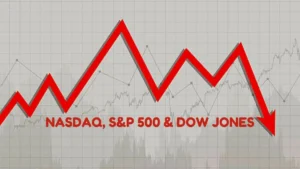Key Takeaways
- The IMF calls on the G20 to strengthen the international financial architecture and support debt restructuring for vulnerable nations.
- Urgent action is needed to improve debt resolution processes and strengthen the global financial safety net.
- With a 15% growth rate, India is a bright spot, according to Georgieva
- The COVID-19 pandemic and external factors have worsened debt vulnerabilities in developing and low-income countries.
- New Global Sovereign Debt Roundtable (GSDR) aims to facilitate discussions among creditors and debtor countries to improve debt resolution processes and provide targeted support.
IMF Urges G20 Leadership For an Immediate Action
The managing director of the International Monetary Fund (IMF), Kristalina Georgieva, has urged the leaders of the G20 to take immediate action and strengthen the International Financial Architecture. In light of the current economic situation, she called for assistance to be provided to the most vulnerable nations that are grappling with debt.
According to Georgieva, global growth is expected to slow down in 2023, remaining below its historical average. This, in turn, will result in “too many people in too many countries struggling to make ends meet.” So, it is imperative for the international community to take responsibility and find solutions for the most vulnerable members of the global family.
Georgieva suggested improving two things in the global financial system:
- The way countries can protect themselves financially, and
- How debt can be reduced or forgiven.
She supported efforts to improve debt resolution and strengthen the architecture because sovereign debt vulnerabilities were already high before the pandemic. The pandemic and Russia’s war against Ukraine made it worse. It particularly affected developing and low-income countries. So, the G20 has a critical role in strengthening the debt architecture.
Debt Restructuring for Vulnerable Countries
Georgieva said we need to finish Zambia’s debt restructuring, set up a creditor committee for Ghana, and make progress with Ethiopia. She also mentioned that we need more consistent and organized procedures for countries under the CF and for those not covered by it, like Sri Lanka and Suriname.
COVID-19 and other external factors have exacerbated significant debt vulnerabilities in these countries. So these countries require urgent attention to avoid a debt crisis. Georgieva urges the international community to find solutions for vulnerable countries. Collaboration and coordination are critical to ensure an inclusive post-pandemic recovery.
Georgieva talked about making debt discussions better between countries. She said a new group called the Global Sovereign Debt Roundtable (GSDR) wants to help with this. The GSDR will bring together many people, like those who lend money (old and new), countries who owe money, and private creditors. They will talk about important issues to help find ways to resolve debt problems.
India is a Bright Spot According to the IMF
Kristalina Georgieva, the head of the IMF, reaffirmed that India is still shining in the global macroeconomic landscape. She praised India for its remarkable progress on digital public infrastructure and its role as an important engine of global growth.
With a 15% growth rate, India is a bright spot, according to Georgieva. Georgieva emphasized that this progress provides a strong foundation for achieving robust and inclusive growth over the medium term. But she also stressed the importance of taking further action to ensure that all countries can benefit from robust and inclusive growth over the medium term.
IMF’s Efforts to Fight Global Economic Crisis
Georgieva highlighted that the IMF has been increasing its lending to member countries facing significant economic challenges. Since the beginning of the pandemic, the IMF has approved $272 billion in financing for 94 countries, of which 57 are low-income countries, through its standard lending facilities and emergency financing.
She also emphasized the IMF’s efforts to address the global food crisis, such as the launch of the Food Shock Window. This initiative has already helped several countries, including Malawi, Guinea, and Haiti, and is expected to benefit more.
The COVID-19 pandemic has caused significant economic disruption globally, hitting low-income countries particularly hard. Many countries have seen a surge in debt levels as they attempt to manage the crisis. This has led to concerns about debt sustainability and the need for debt relief. Georgieva’s call for action comes at a crucial time when solutions are needed to address these challenges.
Georgieva said that the world’s major economies (the G20 group) should lead the way in solving the financial challenges faced by countries. She asked the G20 to improve the global financial system, especially when it comes to resolving debts.
She emphasized the importance of enhanced dialogue and collaboration on debt issues between creditor and debtor countries. Georgieva also highlighted the new Global Sovereign Debt Roundtable’s significance in this regard.
Georgieva said that the IMF has been helping countries during the pandemic. They have given money to countries that are facing economic problems, especially low-income countries.
The IMF’s efforts to address the global food crisis include launching a new initiative, the Food Shock Window. The pandemic has worsened the food crisis globally. So, it’s becoming a pressing issue for many countries.
Role of G20 For Low-Income Countries
The COVID-19 pandemic has caused significant economic disruption globally, particularly in low-income countries. Georgieva’s call for action comes at a critical time when many countries have seen a surge in debt levels due to managing the crisis. This has raised concerns about debt sustainability and the need for debt relief.
Georgieva urged the G20 to take the lead in improving the global financial system and addressing challenges faced by low-income countries. She emphasized the importance of discussing debt issues. Collaboration between creditor and debtor countries through the “Global Sovereign Debt Roundtable” is a must.
The G20, IMF, and other organizations must work together to address the challenges of low-income countries. A sustainable and fair recovery must include everyone.
Georgieva emphasized the need to reinforce the international financial structure and assist countries struggling with debt. She pointed out that countries with low income are facing significant obstacles in recovering from the pandemic. They require targeted support from the international community. Georgieva stressed the importance of sustained efforts to ensure that the recovery process is inclusive and sustainable for all countries.
Georgieva wants a better process for dealing with debt, especially for developing and low-income countries. She mentioned countries like Zambia, Ghana, and Ethiopia that urgently need attention. To ensure an inclusive and sustainable recovery for all, she stressed the importance of strengthening the global financial safety net and improving the way of dealing with debt.
Georgieva wants everyone to work together for an inclusive and sustainable recovery. To achieve this, she suggests improving debt-related communication, strengthening the global financial framework, and providing necessary assistance to low-income countries. By doing so, everyone can recover from the pandemic’s effects together without leaving anyone behind.
The Bottom Line
Now, it’s really important to help vulnerable nations by strengthening “International Financial Architecture”. World leaders need to take action and provide financial support and assistance to those who need it most. There are a few ways to help, such as debt relief, foreign aid, and investing in infrastructure development. So, by working together and implementing these solutions, we can ensure that everyone has access to the basic necessities and opportunities needed for a better future. Let’s prioritize the well-being of all members of the global family by coming together to make a positive change.
Source: Google




